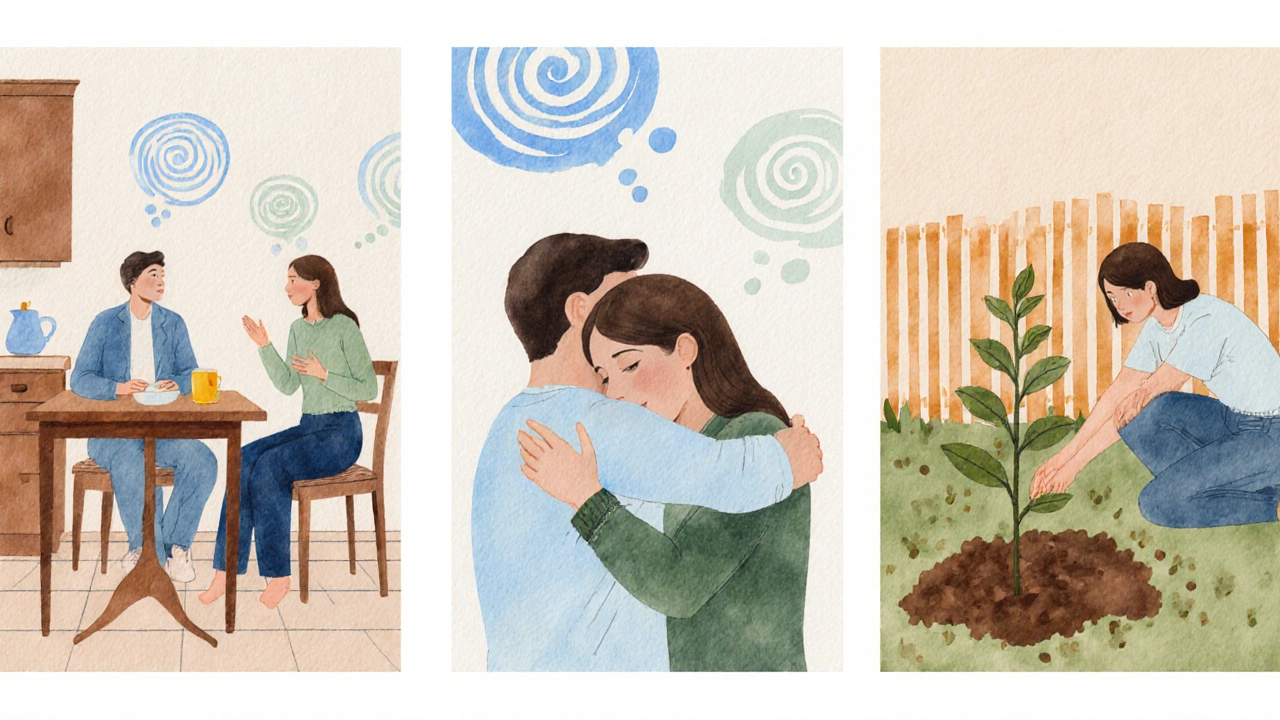Partnership Assessment Quiz
How Strong Is Your Partnership?
Answer these questions honestly to assess your relationship's foundation based on the core qualities of a true partner.
Your Partnership Assessment
Ever wonder why some couples seem to glide through life while others are stuck in endless drama? The secret often lies in the presence-or absence-of a true partner. It’s not just about romance; it’s about a deep, reliable connection that lifts both people up. Below we break down what that really means, how to spot it, and practical steps to nurture it.
Defining a True Partner
When people talk about a true partner is someone who consistently supports, respects, and grows with you in a healthy relationship, they’re describing more than just a romantic label. A true partner acts as an equal, shares responsibility, and aligns with the core values that keep a relationship resilient over time.
Core Qualities That Signal a True Partner
Trust is the belief that your partner will act in your best interest, even when you’re not looking. When trust is solid, secrets stay hidden and doubts fade away. It creates a safety net for vulnerability.
Effective Communication means open, honest, and empathetic dialogue that resolves issues before they balloon. True partners listen actively, ask clarifying questions, and avoid blame‑heavy language.
Emotional Support offers steady encouragement during life’s ups and downs, helping each other manage stress, grief, and triumphs. It’s the gentle hand that steadies you when you stumble.
Shared Values are the guiding principles-like honesty, family, or personal growth-that shape decisions and future plans. When those align, conflict over big life choices drops dramatically.
Respect is treating each other’s individuality, opinions, and boundaries as worthy of consideration. Respect keeps ego in check and fosters equality.
Clear Boundaries define personal limits and expectations, preventing resentment and over‑dependence. They’re essential for personal growth within the partnership.
Every true partnership also nurtures Empathy, where each partner truly feels the other’s emotions, and Conflict Resolution skills, allowing disagreements to become constructive rather than destructive.
How to Recognize If You Already Have a True Partner
- You feel safe sharing your deepest fears without fearing judgment.
- Disagreements end with mutual solutions, not lingering resentment.
- Both of you celebrate each other’s successes as if they were your own.
- Future plans are discussed together, reflecting shared values and goals.
- Personal space is respected, and you both maintain individual hobbies and friendships.

Practical Steps to Build a True Partnership
- Schedule a weekly check‑in: dedicated time to discuss feelings, concerns, and wins.
- Practice active listening: repeat back what you heard before responding.
- Set clear boundaries together and revisit them quarterly.
- Invest in personal growth: attend workshops, read relationship‑focused books, or see a therapist together.
- Show appreciation daily-small gestures reinforce respect and emotional support.
Common Pitfalls and Red Flags
Even the best‑intentioned couples can slip into patterns that erode trust. Watch out for stonewalling, constant criticism, or a one‑sided give‑and‑take where one partner always sacrifices their needs. These behaviors often signal that the partnership has not yet reached the "true partner" level.

Comparison: True Partner vs. Typical Partner
| Quality | True Partner | Typical Partner |
|---|---|---|
| Trust | Unquestioned confidence in each other's actions | Occasional doubt, need for reassurance |
| Communication | Open, solution‑focused dialogue | Avoidance or blame‑laden conversations |
| Emotional Support | Consistent presence during highs and lows | Support feels sporadic or conditional |
| Shared Values | Aligned life goals and moral compass | Values clash on key life decisions |
| Respect & Boundaries | Mutual respect for individuality | Boundary violations often ignored |
Frequently Asked Questions
How long does it take to become a true partner?
There’s no set timeline. It develops as trust, shared experiences, and mutual growth accumulate. Some couples feel it after a year; others may take several years.
Can a true partnership survive major life changes?
Yes, if both partners maintain open communication, revisit boundaries, and align on core values. Adaptability is a hallmark of a true partner.
Is love enough to be a true partner?
Love is essential but not sufficient. Trust, respect, and shared values are equally critical for a lasting partnership.
What role does personal growth play?
A true partner encourages individual development. When each person evolves, the partnership stays dynamic and resilient.
How can I address a lack of trust?
Start with transparent conversations, set clear expectations, and follow through on commitments. Therapy or counseling can also rebuild broken trust.






